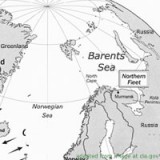Russia to Keep State Control of Shelf – Dvorkovich

MOSCOW, January 22 (RIA Novosti) Russia has no plans to allow foreign companies to work independently on the country’s continental shelf but will let them develop offshore deposits there in partnership with Russian state firms, Deputy Prime Minister Arkady Dvorkovich said on Tuesday.
“As for the admission of foreign companies, no changes are planned, which means foreign companies can be involved as technological partners, including on the risk-sharing terms, but not as license holders,” Dvorkovich said in response to a question about the government’s position on the development of the Russian continental shelf.
Discussions on the admission of private investors to the development of the Russian continental shelf have been largely completed, Dvorkovich said.
“We agreed that the main players are state-run companies but proposals will be finalized to specify instances when private firms could work on the shelf,” he said.
Under existing rules, only Russian companies with over 50 percent state ownership and no less than five years experience working in marine exploration are allowed to develop the Russian continental shelf. Only Rosneft and gas giant Gazprom currently meet these requirements, although they can involve other companies in the shelf development through joint ventures.
Natural Resources Minister Sergei Donskoi proposed last week that the right to develop shelf sections unclaimed by state-controlled companies should be ceded to Russian private oil and gas companies.
Recoverable hydrocarbon resources on Russia’s continental shelf have been estimated at 98.7 billion tons of oil and gas in fuel equivalent.
The increasingly eastward-orientation of Russia’s energy exports will not affect supplies to Europe, Dvorkovich said.
“The East is a potentially good market for us even today and deliveries there will increase but not at the expense of meeting Europe’s demand,” he said in a response to a question about if Russia would reorient its crude oil exports from Europe to the Asia-Pacific region.
On December 25, 2012, Russia launched the second leg of the East Siberia – Pacific Ocean (ESPO) oil pipeline intended to pump Siberian oil to China, Japan and South Korea.
ESPO-2 ties Skovorodino, the terminus of the ESPO-1 pipeline, to the Pacific port of Kozmino.
Russia has always conducted and continues to conduct a reliable and safe energy policy, meeting the demand of all parties concerned for energy resources, Dvorkovich said.
“The risks that emerged in some years were more related to transit countries than to us. And we today are minimizing these transit risks as well, by building new pipelines from Russia to Europe and from Russia to Asia, and also using maritime ways of oil and gas transportation,” Dvorkovich said.
Russia’s capital outflow in the past few years has not been related to the country’s macro-economic performance and can be explained by the risks of investment projects in Russia, Dvorkovich added.
“The macro-economic situation in Russia is fairly good and is not the reason for the capital flight. We believe that…this is due to investment risks, which businessmen see in Russia,” Dvorkovich said.
Capital flight from Russia peaked at $133.7 billion in 2008 when the global economic crisis broke out, falling to $56.1 billion in 2009. Capital outflow from Russia stood at $80.5 billion in 2011 compared with $34.4 billion in 2010.
According to preliminary Central Bank data, capital flight from Russia slowed to $56.8 billion in 2012 and may fall to $10 billion in 2013.
